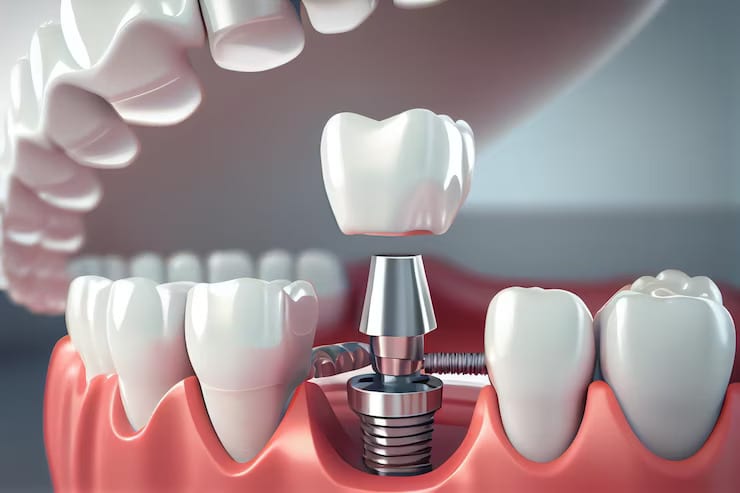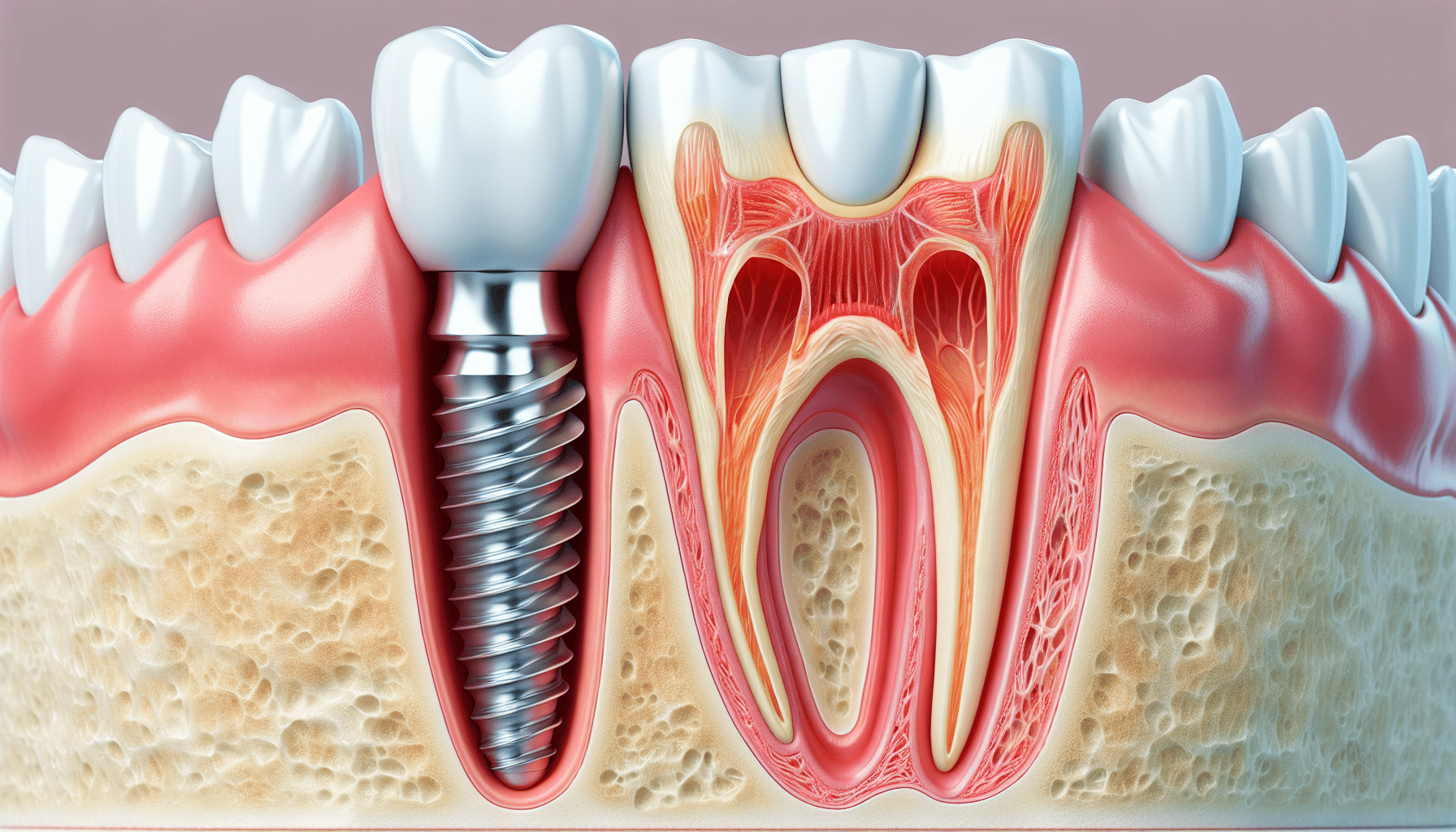Dental Implants Columbus OH Dental Implants: Services and Expertise
Dental Implants Columbus OH Dental Implants: Services and Expertise
Blog Article
Dental Clinic New Albany OH Dental Implant Services: Find the Best in Your Area
Dental implants have emerged as a preferred alternative for people looking for a long-term solution to tooth loss. One important facet of understanding dental implants includes their effect on adjacent teeth. This is particularly necessary for making certain the health and longevity of the whole dental structure.
When a dental implant is placed, it mimics the operate of a natural tooth root. By doing so, it helps keep the integrity of the encompassing bone structure. Natural teeth rely on a balanced, interconnected system for assist, and dental implants can contribute positively to that dynamic. The stability offered by the implant allows for higher distribution of bite forces, which might prevent undue stress on adjacent teeth.
Dental Care Associate Centerburg OH Understanding the Cost of Dental Implants (2024 Edition)
In circumstances where a tooth is missing, the neighboring teeth might shift into the vacant area. This shifting can result in misalignment and various other issues. By inserting a dental implant, the risk of this shifting is lowered, because the implant acts as a placeholder that preserves the natural alignment of surrounding teeth. This preventive impact is essential for long-term oral health and function.
Another important consideration is bone loss. When a tooth is lost, the jawbone in the space can start to deteriorate due to a lack of stimulation. Dental implants help prevent this bone loss by providing the required stimulation to the jawbone, very like a natural tooth root would. This preservation of bone not solely helps the implant itself but also contributes to the stability of adjacent teeth.
The type of material used in dental implants, typically titanium, has a novel property of osseointegration, meaning it fuses with the bone over time. This integration offers a sturdy basis for the bogus tooth whereas guaranteeing that the implant doesn’t negatively affect surrounding constructions. As the implant integrates, it creates an setting that contributes positively to the health of the adjacent teeth.

Regular dental check-ups play an important function in monitoring the impact of dental implants on adjacent teeth. Professional assessments may help establish any issues which will come up, guaranteeing prompt remedy and sustaining the health of the entire dental arch. These evaluations may embrace X-rays to verify for bone density and the general condition of the implant and surrounding teeth.
Dental Center Centerburg OH Dental Implants for Seniors: Considerations and Benefits
Oral hygiene practices are very important for individuals with dental implants. Proper brushing and flossing habits not solely contribute to the longevity of the implant but additionally ensure that adjacent teeth remain healthy. Food particles and plaque that accumulate around the implant could cause problems, including peri-implantitis, an inflammatory condition that can affect surrounding teeth and tissues.
The positioning of dental implants can affect the health of adjacent teeth. If an implant is placed at an angle or not properly aligned, it could lead to increased stress on neighboring teeth. This misalignment might cause put on and tear on adjacent enamel, probably leading to cavities or other dental points. Therefore, the talent and expertise of the dentist performing the implant process are paramount in achieving a profitable end result.
In some instances, additional procedures could additionally be essential to organize the encompassing area for an implant. Bone grafting or sinus lifts may help create a greater environment for the implant. While these procedures are aimed at enhancing the positioning for the implant, additionally they serve to protect the health of adjacent teeth by making a more stable basis.
Dental Care New Albany OH Dental Implant Types: Choosing the Right Solution

As dental know-how evolves, advancements in implant strategies lead to higher outcomes. Improved imaging methods and computer-aided design enable for more precise placements that reduce risk to adjacent teeth. With these advancements, the chance of complications that might arise from improperly positioned implants diminishes significantly.
Post-operative care also performs a critical function in making certain that adjacent teeth stay unaffected. Patients must adhere to the dentist's directions relating to food plan, oral hygiene, and follow-up visits. Neglecting these tips may lead to issues that impact not solely the implant but also the neighboring teeth.
Dentist Alexandria OH Single-Tooth Implants: Everything You Need to Know
In conclusion, dental implants, when positioned accurately and cared for correctly, have the potential to enhance the health of adjacent teeth rather than detract from it. They maintain alignment, stimulate bone growth, and provide a safe basis that helps the entire dental structure. Understanding how dental implants affect adjacent teeth emphasizes their significance as a long-term tooth replacement solution. With continuous developments in technology and strategies, the integration of dental implants into restorative dentistry is changing into more and more successful, guaranteeing healthy and useful smiles for years to come.

- Dental implants prevent adjacent teeth from shifting into the gap created by a missing tooth, serving to to maintain proper alignment in the mouth.
- The rebuilding of the jawbone by way of an implant can stimulate surrounding teeth and maintain them healthy by providing needed bone density which may otherwise diminish.
- Adjacent teeth profit from the stabilization that dental implants present, reducing the danger of wear and tear from misalignment throughout chewing.
- Implants can defend adjacent teeth by acting as a framework, which can distribute chunk forces evenly across the dental arch as a substitute of placing undue stress on neighboring teeth.
- When positioned accurately, dental implants decrease the chance of gum disease which may affect adjacent teeth by sustaining a clean and healthy gum line.
- The presence of an implant can facilitate an improved oral hygiene routine, as it eliminates the necessity for bridgework that might entice food particles around adjacent teeth.
- Regular dental check-ups can reveal how well the implant integrates with surrounding buildings, guaranteeing ongoing health for adjacent teeth.
- Implants can prevent the natural means of bone resorption that happens after tooth loss, positively impacting the steadiness and longevity of adjacent teeth.
- The use of dental implants might cut back the need for more invasive procedures in the future, offering a long-term answer that maintains the structure of the complete dental arch.
- Successful integration of an implant into the dental arch enhances total oral perform, usually resulting in improved confidence and oral health for adjacent teeth.undefinedHow do dental implants have an result on adjacent teeth?
What impression do dental implants have on the alignment of adjacent teeth?
Dental implants generally prevent the shifting of adjacent teeth, serving to to keep up correct alignment. This stability can reduce the risk of growing chew issues over time.
Can dental implants cause injury to close by teeth?
When placed correctly by a professional skilled, dental implants shouldn't harm adjacent teeth - Dental Care Associate New Albany OH. However, improper placement or insufficient planning could lead to problems
Smile Care Pataskala OH Dental Implant Procedure: What You Need to Know Before Surgery
Do dental implants require any particular care concerning adjacent teeth?
Maintaining good oral hygiene is crucial. Surrounding teeth must be brushed and flossed frequently, and routine dental check-ups will help be positive that each the implants and adjacent teeth stay healthy.

Will dental implants impression the health of my surrounding teeth?
Dental implants can improve the health of surrounding teeth by distributing chew forces evenly, decreasing wear and tear. Additionally, they'll prevent bone loss within the jaw, which might affect adjacent teeth.
Dental Implants Sunbury OH Permanent Dental Implants
Are there any long-term results of dental implants on basics close by teeth?
Long-term, dental implants can help preserve the health of adjacent teeth by stopping shifting and potential gum points, ultimately contributing to better oral health overall. - Dentist Office Galena OH
Can gum problems come up round adjacent teeth after getting implants?
If correct dental care is uncared for, gum points might develop around both the implants and adjacent teeth. Following post-operative care directions is important to attenuate these risks.
Dentist Office Condit OH The Advantages, Risks, and Insurance for Dental Implants
How do dental implants examine to bridges by way of adjacent teeth?
Dental implants are sometimes useful as they don’t require alteration of adjacent teeth, unlike bridges, which necessitate reshaping of nearby teeth for support. (Dentists Alexandria OH)
Can I still get Read Full Article cavities in adjacent teeth if I truly have dental implants?
Yes, adjacent teeth can nonetheless develop cavities if not correctly cared for. Dental implants themselves can't get cavities, but they require vigilant hygiene practices to guard surrounding natural teeth.
What is go to this website the success rate of dental implants in relation to surrounding teeth?
The success rate of dental implants is excessive, however it largely depends on the standard of the procedure and ongoing care. Well-maintained implants typically result in higher outcomes for adjacent teeth as well.